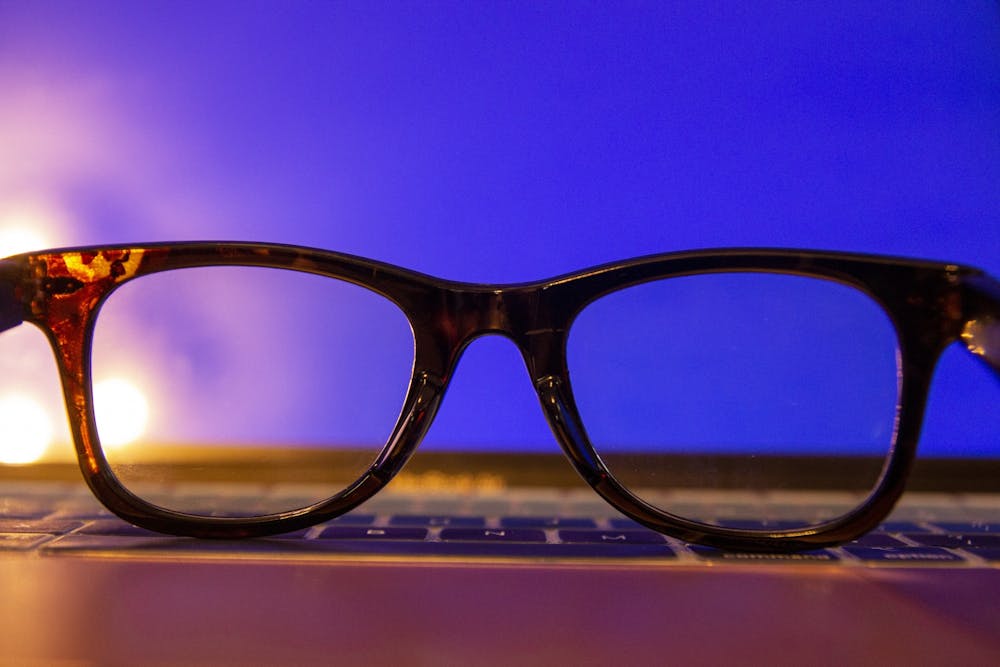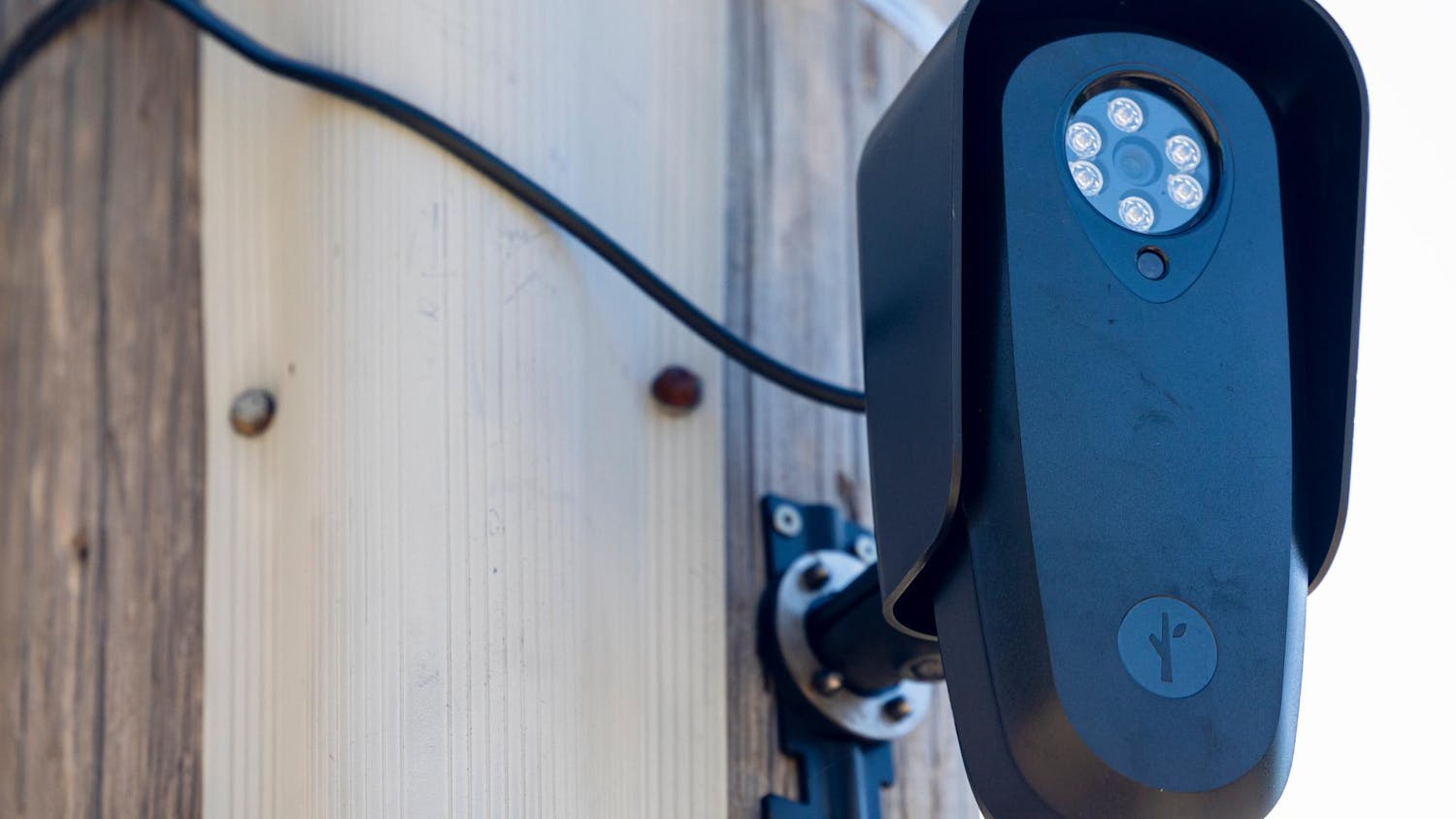IU freshman Kaitlin Clary has been wearing blue light filtration glasses every day for a couple hours over the the past month.
“Ever since I started wearing them I’ve been able to fall asleep faster and sleep for a full eight hours,” Clary said.
Purdue Northwest sophomore Julianne Long has been wearing her blue-light-filtration glasses for the past six months. Long began wearing the glasses after she got constant headaches from looking at her computer screen all day. She said she’s noticed a subtle change in sleep improvement.
Recent studies from a Kelley School of Business assistant professor determine blue-light-filtration glasses improve sleep quality and work engagement. Indicators show improvements range from 5% to 17.82%.
Cristiano Guarana, the professor who conducted the study, began researching sleep patterns while he was enrolled in the Ph.D. program at the University of Washington in 2010. Much of his research focuses on leadership and the decision making process.
“Sleep is an important aspect of our human nature that influences how we behave and our emotions,” Guarana said. “Since I’m interested in sleep, I wanted to find interventions to improve the quality of it.”
Guarana said blue light helps people stay awake and delays the production of melatonin. Since blue light is an important component of sleep patterns, Guarana began researching blue light filtration.
Guarana and his colleagues, Christopher Barnes and Wei Jee Ong, used power analysis to determine the sample size for their research. Power analysis estimates the minimum sample size needed for an experiment. After finding a company from Brazil to complete their study, they decided to use 63 managers and 67 customer service representatives.
“My personal interest in leadership drew me to looking into managers,” he said. “Managers have a lot of opportunity to exert responsibilities, citizenship behaviors and performance levels.”
Guarana, who is originally from Brazil, completed the study there because the psychology and physiology of sleep between Brazilians and Americans appears to be the same.
Participants were given two sets of glasses for the study: a blue-light-filtration pair and a placebo pair. They were told to wear one of the pairs for a week straight for two hours before going to sleep. During the second week of the study, participants would wear the other pair.
Participants would take two surveys each day, one in the morning and one in the afternoon. The survey concluded managers had an 8.51% increase in higher work engagement and customer service representatives had an 8.25% increase.
Results found after one week of wearing filtration glasses, managers reported sleeping 5% longer and customer service representatives reported sleeping 6% longer than normal. Managers also reported receiving 14% better sleep quality and customer service representatives reported an 11% increase.
“Small amounts of sleep matter,” said Christopher Barnes, professor of management from University of Washington. “We aren’t drastically increasing the quality of sleep people get. Even the average 10% increase of sleep quality was able to produce meaningful effects in the workplace.”
Additional results concluded managers had a 17.29% increase in helpful behavior and customer service representatives had a 17.82% increase. Helpful behavior involves being more cooperative and supportive when assisting other employees and customers. Managers and customer service representatives reported between 11.76% and 11.78% less negative work behavior.
“I am super happy with the results,” Guarana said. “The theory states the glasses help with sleep and work outcomes, and it’s a cheap intervention.”
Independent research concluded the average cost of blue light glasses to be $69. Guarana said two hours is the minimal amount people should wear the glasses each evening. Over time, there will be an increasing effect from the glasses.
“I’m proud of the practical implication from this study,” Barnes said. “This is a cheap and easy solution to implement.”




